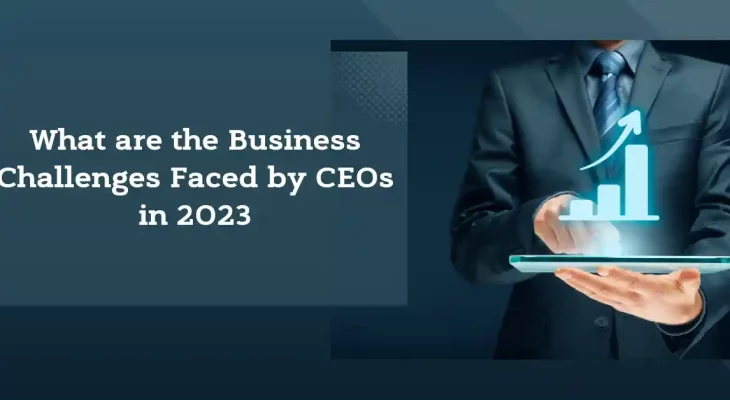What are the Business Challenges Faced by CEOs in 2023
A new year is always a time for new reflection, in business circles just as much as in personal lives. Though tax years and accounting periods are staggered from the sidereal year, there is still much use in using the passing of years to track general progress – including both successes and failures.
2022, then, was a year of surprising hardship for businesses emerging from the stagnation of the coronavirus pandemic. With a shifting financial landscape, and ever-shifting attitudes and approaches to work, business leaders are facing fresh challenges in 2023 – necessitating action and response in order to maintain relevance. But what are some of the leading challenges that CEOs face, and how have they developed?
Financial Disruption
The leading challenge faced by business executives in 2023 relates to the financial landscape in which they are operating. The pandemic had its own impacts on profitability and GDP growth in 2020 and 2021, but numerous other factors have served to independently slow the UK economy – including geopolitical instability, which has increased the cost of oil and energy.
We will touch more on international trade shortly, but rising costs are fuelling one half of a dangerous environment for businesses; consumer spending is falling, and the nation has only narrowly avoided recession conditions. With overheads high and income low, less robust or agile businesses are much more likely to fold.
There are several routes that can be made through such crises, and independent advisors are well-equipped to help businesses weather the storm, so to speak – but nonetheless, it can be an existential consideration for CEOs, particularly those involved in new start-ups.
Barriers to International Trade and Partnership
The UK’s poor economic outlook is a result of several different factors, but one of the more obvious ones is the UK’s withdrawal from the EU. Some short-term impacts have been palpable, but the long-term outlook with regard to partnerships and expansion is still something of a mystery.
Jean Stephens, CEO of RSM Global, had the following to say of the unique situation Brexit presents UK enterprises: “About 80% of the UK economy is in the financial services sector which presents several unknowns as to how this relationship will evolve. The challenge that Brexit presents is in being able to see through the noise generated through the media and assessing what the true outcomes will be, how they will affect the global economy, and how organisations will adapt.”
Shifting Workforces
Another major challenge that CEOs will need to face head-on in the coming months relates to the nature of work in the modern age. There are two distinct ways in which workforces are changing, the first being a sea change in sentiment amongst the nation’s workers. The ‘Great Resignation’ was an example of this phenomenon, as workers increasingly value their experience and mental wellbeing above job roles with unmotivating perks and progression. Simply put, businesses will have to work harder to attract talent.
The other way that work is changing relates directly to the pandemic. During the lockdowns of 2020 and 2021, remote working infrastructure and staff frameworks were not only implemented but normalised, and demonstrated to be highly effective. As a result, the post-pandemic work landscape is one of hybridity; workers expect opportunities to cut out the commute, to work around their life, and to opt in to office contact – all of which can present logistical and cost difficulties for CEOs.







